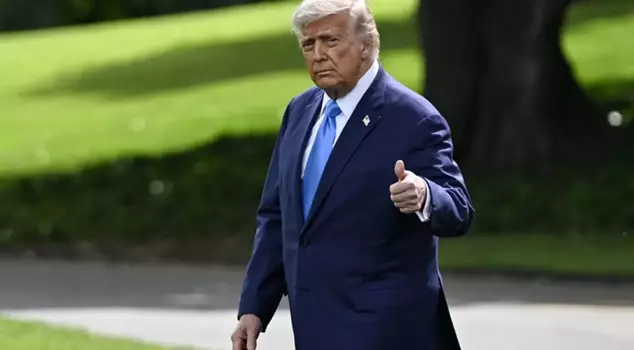
09.06.2025 13:31
While protests aimed at supporting irregular migrants detained in Los Angeles, USA, continue, President Donald Trump's decision to ban citizens from 12 countries from traveling to the United States has come into effect.
The strict and controversial immigration and national security policies adopted by U.S. President Donald Trump continue to resonate internationally. The executive order signed by Trump last week, which completely bans the entry of citizens from 12 countries and imposes partial restrictions on 7 countries, went into effect today.
IMPOSED TRAVEL BAN WHILE PROTESTS CONTINUE
On the third day of border protests in Los Angeles, Trump's decision to ban travel to the U.S. for citizens of 12 countries, citing "threats to national security," was implemented. It remains to be seen whether the enforcement of this decision will affect the protests that have been initiated to support irregular migrants and have increasingly escalated.
HERE ARE THE COUNTRIES
It was reported that Trump signed an executive order containing the ban on June 5. Under this order, the travel of citizens from Afghanistan, Myanmar, Chad, the Republic of the Congo, Equatorial Guinea, Eritrea, Haiti, Iran, Libya, Somalia, Sudan, and Yemen to the U.S. was banned. Trump also imposed travel restrictions on citizens of Burundi, Cuba, Laos, Sierra Leone, Togo, Turkmenistan, and Venezuela.
EXEMPTIONS FOR LEGAL RESIDENTS
On the other hand, citizens of these 19 countries who are legally residing in the U.S. or hold a valid visa and "serve the national interests of the U.S." were excluded from the executive order.
Trump stated in a post on the White House's X social media account, "We will not allow people who want to harm us to enter our country."
Donald Trump indicated that the number of countries subject to travel restrictions could be revised as necessary and that "as new threats emerge," different countries could also be added to the list.
THIS IS NOT THE FIRST TIME
Moreover, President Trump had previously implemented a travel ban on passengers from 7 predominantly Muslim countries during his first term, a decision that sparked serious debates. This policy was revoked by President Joe Biden, who took office in 2021.